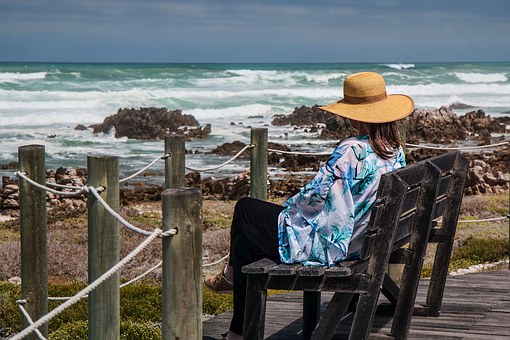Take a moment and contemplate your legacy. What do you want that legacy to be? Take inventory of your current situation. Are you where you thought you’d be, or hoped to be, at this point? Where do you want to go from here? What it will take to get there?
I’ll have to admit that I don’t watch a lot of movies, but two of my favorites are The Jerk and Forrest Gump, very much in part because Steve Martin and Tom Hanks are two of my all-time favorite actors. Beyond the acting and stories, there are some fantastic quotes (and lessons) in each of these movies. And, let’s be honest, I can see parts of myself reflected in both Navin R. Johnson and Forrest Gump!
I recently began to think about each of these films in more detail, especially as it relates to the ate truths.
At the beginning of each movie, we get the impression that money wasn’t necessarily easy to come by for either character or their families. As both men set off to find their own way in life, the real lesson happens as each of them begin to amass their respective fortunes.
Flush with cash from the invention of the Opti-Grab, Navin begins to spend his money as fast as he earns it – on cars, art, clothes, a mansion, butlers and maids, lavish parties, and donations to any questionable charity that approaches him.
Forrest, on the other hand, seems to be a bit more grounded in his lifestyle choices when the big money begins to pour in through the shrimping business he began to fulfill his promise to Bubba.
All the while, though, Forrest never eschews his simple upbringing. Instead of increasing his spending to meet his income, we don’t see him spending lavishly to buy material things. Forrest chooses to reinvest some of the earnings from his business to expand his fleet of shrimping boats, and he reaps the rewards from some wise investments in a “fruit company” called Apple.
More importantly, Forrest donates money to his community, improving the lives of those around him, and he provides financial support to Bubba’s mom so she won’t have to work again.
On the other hand, as we progress toward the end of The Jerk, the house of cards falls and begin to see the real impact of Navin’s lifestyle choices.
After a class-action lawsuit against him and the Opti-Grab, his world comes crashing down around him, and he loses everything – all of his material possessions anyway. Who can forget the scene where, as his wife longs for the days when their life was simple, he’s telling himself that all he really needs is “this paddleball game, and this lamp, and this chair, and that’s it”?
Aside from a lesson about spending every dime you make (and potentially even more via credit), and not saving or investing for the future, another takeaway is that true worth and happiness are not measured by possessions.
Luckily for him, his wife stayed by his side, and his family welcomed him back with open arms. And, thanks to some shrewd investing by his family with the money that he’d been sending home to them, he was at least able to return to a little bit larger shack than when he’d first left.
The very last scene of The Jerk also drives home the point that genuine happiness is not found in stuff, as we see the entire family dancing and laughing together on the front porch of that shack.
Toward the end of Forrest Gump, even after going through some personal tragedies of his own, Forrest seems to be in a happy, peaceful place, with a life of little stress. I can’t help but think that this was a result of never forgetting his roots and making choices that were congruent with his values and priorities.
He lived simply, worked hard, made wise choices with his money, showed compassion to others, and was always optimistic.
At one point in the movie, Forrest asked his mom what his destiny was. She responded “you’re gonna have to figure that out for yourself”.
And, to quote part of a letter that Navin sent back home to his family, I hope that you too “[find]…[your] special purpose…”.
If it came down to it, would you be Navin R. Johnson – fretting over which of your many material possessions you needed to take with you? Or would you be Forrest Gump – living simply, contributing to the greater good, and understanding that all the money in the world can’t buy happiness?
And if you’re not sure, take a moment to contemplate your goals and priorities.
The choice is yours. And that’s all I have to say about that.


